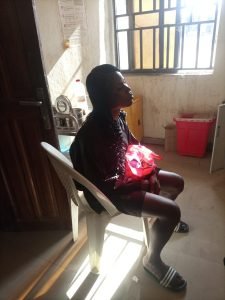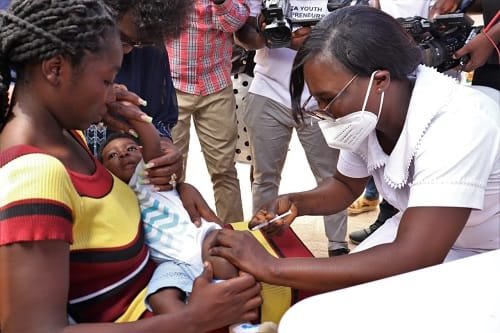Rising inflation in Nigeria, which has worsened with foreign exchange policies and fuel subsidy removal, has deepened the gulf between middle and low income Nigerians as prices for essential and prescription drugs rise beyond the reach of the common man, Jumoke Olasunkanmi, writes.
The pharmaceutical industry is not shielded from the harsh economy as prices for essential and prescription drugs rise climb steadily out of the reach of majority of Nigerians.
Africa Health Report (AHR)’s Market survey revealed that commonly used malaria drugs such as Amatem and Coartem of the Artemether Lumefantrine brand now sell for N2500 – N2700 from N1200, a 125 percent increament.
This is alarming for a country like Nigeria where 97 percent of the population is at risk of malaria. According to the World Health Organisation (WHO)’s 2022 World Malaria Report, Nigeria accounts for 27 percent of malaria cases and 31 percent of malaria related deaths worldwide, with 97 million cases and 300,000 deaths reported annually.
Despite these dreary figures, Nigeria’s health budget continues to be dismal. The Federal Government, in the 2023 budget, allocated N1.17 trillion to the health sector, which is just 5.75 percent of the total budget, and less than the 15 percent recommended by the African Union (AU).

In 2021, member states of the AU had met in what is now known as the Abuja Declaration on Health to pledge the allocation of 15 percent of its total budget to the health sector.
2023 budget analysis revealed that out of the N1.17 trillion, only N47.64 billion was allocated to the Basic Health Care Provision Fund (BHCPF), 13.61 percent lesser than 2018’s N51.15 billion. With an estimated population of 223.8 million people, the healthcare allocation per person is less than N6000, which translates to N500, less than one dollar, monthly.
So with next to nothing provided to take care of the needs of Nigerians, public health is put at risk as the poor who rely on government health facilities cannot afford treatment.
Lab tests, pharmacy prescriptions and other ways Nigerians now using to reduce treatment cost
AHR spoke with Mr Emmanuel Ayoola, who said he was rushed to a private health facility in Garki area of Abuja.
“I had a sudden bout of fever and was shivering so bad, I had to be rushed to Fresh Springs Hospital in Garki. They ran some tests and gave me some injections for the pain. The test result showed that I had malaria. Imagine my surprise when after that I was asked to make a deposit of N100,000 to continue treatment.”
Mr. Ayoola added that despite needing treatment urgently, he had to leave the hospital to look for an alternative means of solution.
“When I told them I couldn’t afford the deposit, they said they wouldn’t continue with treatment and I was asked to pay N26,000 for consultation, tests, and folder.

The malaria test alone was around N6000. I paid the money and went to a pharmacy to get malaria drugs. I spent about N5000 on the drugs.”
Due to the high fees hospitals charge, many Nigerians now opt for across-the-counter malaria medicines. This was the case for Mr Udochukwu Peter, who told AHR that he chose to go to a pharmacy because hospitals were too expensive and his symptoms were not severe.

“I had symptoms of malaria so I went to a chemist. I knew that going to the hospital would be too expensive and my symptoms were not severe. I paid N3000 for malaria tablet and pain reliever. When I had malaria sometime in January, I paid 2000 for drugs.”
For others like Ms Cynthia Onyekachi Nwachukwu, a hospital visit is not her best option because the nearest one is still quite far from her house. She explained that after running a malaria test in a private laboratory when she fell sick, she settled for drugs and herbal concotion.

“I live in Agbara, Ogun State and the hospital is quite far from my house.
Three weeks ago, I had fever so I went to a pharmacy and was tested for malaria and given drugs to use,” she disclosed.
Nwachukwu added that in addition to the drugs, she took herbal concotion popularly known as agbo to help fight her fever. Calculating the total cost of her treatment, she said “the test was N2000, the drugs, N2700 and I bought agbo for N4000.”
But even people who visit public health facilities do not get treatment cheaper. Ms Precious Okoh, who was treated for malaria at AMAC Primary Health Centre, Lugbe, in Abuja said she spent a little over N10,000.

“I paid N300 for card, N1500 for tests, N5500 for injections and intravenous drips and N3000 for drugs. I basically paid for everything I got, what then is the healthcare the government is providing?” she queried.
Rising medicine cost will cause more deaths among Nigerians – Medical expert
Speaking with AHR, Dr. Chuks Stephen Chukwuedo, a general physician at General Hospital, Ikorodu, Lagos, explained that the rising cost of malaria treatment in the midst of the current economic crisis would result in more people choosing unconventional modes of treatment which will consequently lead to more preventable deaths.
“The effect of this is that we would have less people who would use more unorthodox way of treatment, rather than go to hospital for proper investigation, diagnosis and treatment, thereby leading to more preventable deaths caused by malaria.”
He added: “Nigerians seeking help for treatment of malaria from places that are not properly updated on current mode of treatment of various forms of malaria would eventually lead to poor treatment, increased cost of treatment, possibly more morbidity and mortality in the populace in general.”
Dr. Chukwuedo explained that people who are most affected by the rising cost of malaria medicines are unfortunately more susceptible to the disease due to poor, unhygienic living conditions.
“The sharp rise in cost of medications in general is a big burden for households, particularly the poor who are the people who suffer more from this disease as a result of the environment where they live and their sanitation level”.



